Rabbit farming is an important enterprise in Nigeria. It provides a source of income for many small-scale farmers, and meat is a valuable source of protein. Rabbit farming is also relatively easy to set up and manage, making it a good business option for those looking to start their own business.
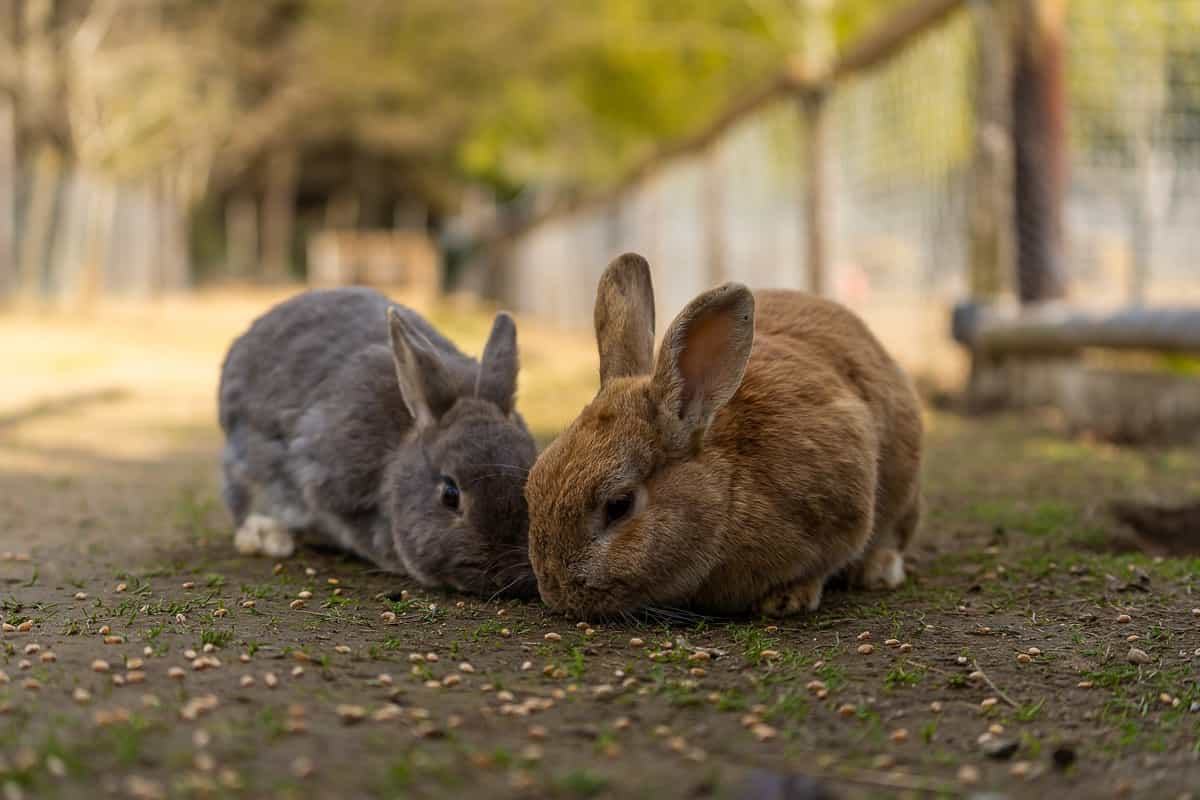
How to start rabbit farming in Nigeria
Rabbit farming importance in Nigeria
- In Nigeria, rabbit farming is an agricultural practice in which rabbits are kept for their meat, fur, or wool. Rabbit farming can be done on a small or large scale, and it can be profitable if managed properly.
- Rabbits are easy to care for and reproduce quickly, making them a good choice for farmers who want to start small-scale operations. Rabbit meat is high in protein and low in fat, making it a healthy option for consumers. Rabbit fur is also valuable and can be used to make clothing or other products. Rabbit meat is a nutritious, low-fat source of protein that is popular among Nigerians. Rabbit farming also provides a valuable source of fertilizer and leather.
Small scale Rabbit farming in Nigeria
Small-scale Rabbit farming in Nigeria is not as difficult as it may seem. With some planning and effort, anyone can start a small farm. The first step is to purchase quality rabbits from a reputable breeder. Next, the rabbits need a comfortable home with plenty of space to run and play. The enclosure should have a solid floor that can be easily cleaned and big enough for the rabbits to move around freely.
Rabbits require fresh hay, water, and vegetables every day. A proper diet is essential for the health of your rabbits. Be sure to consult with a rabbit expert or veterinarian to create a diet plan that meets the specific needs of your animals. In addition, it is important to practice good hygiene to keep your rabbits healthy and free from disease. This includes cleaning their enclosure regularly and washing your hands after handling them.
Vaccinating your rabbits against common diseases such as rabbit fever and myxomatosis is also important. However, with proper care and attention, small-scale Rabbit farming in Nigeria can be a rewarding experience. Not only will you have the satisfaction of raising healthy animals, but you will also be able to produce high-quality meat and fur for sale or trade.
Rabbit farming areas in Nigeria
The main rabbit farming areas in Nigeria are located in the northern part, where the climate is cooler, and there is less rainfall. However, rabbit farming is also common in the central and southern parts of Nigeria.
In case you missed it: How to Start Rabbit Farming in the Philippines: Business Plan, Profit, Subsidy, Loans, and Requirements
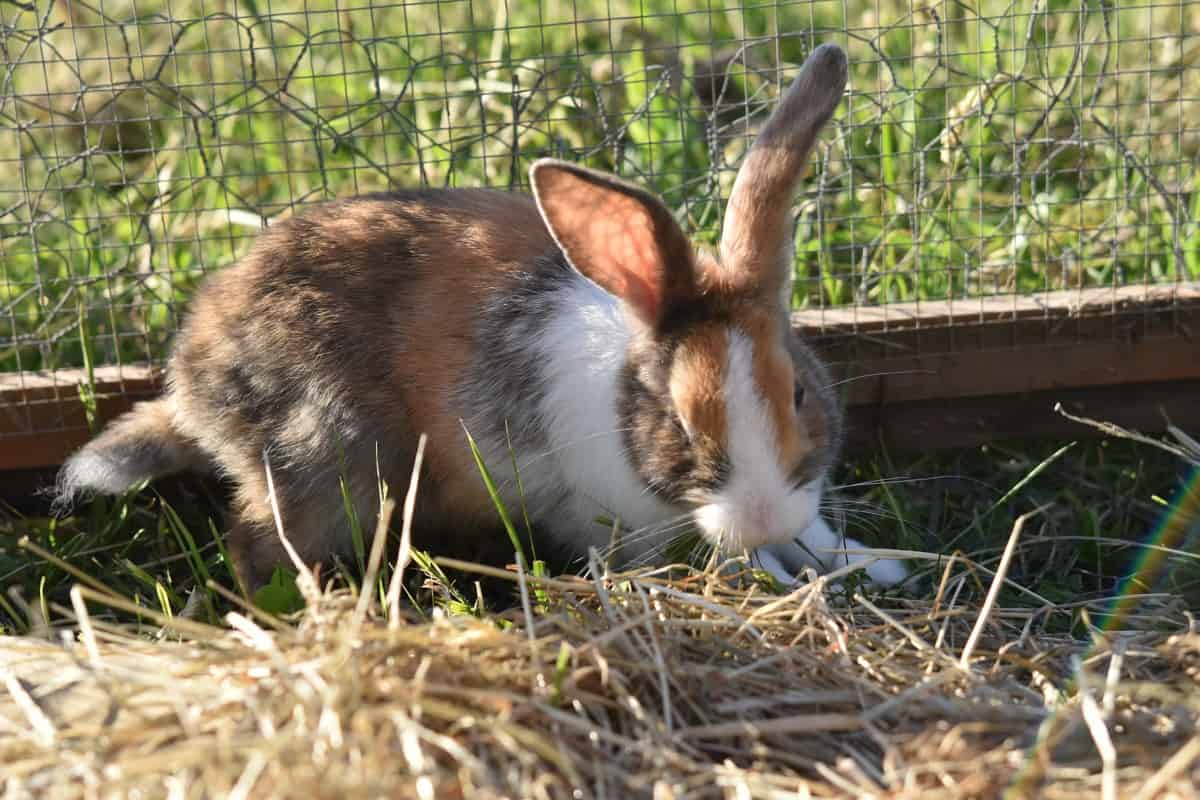
Steps to start a rabbit farming business in Nigeria
- Do your research: Before starting any business, it is important to research and identify the opportunities and threats in the market. For rabbit farming, you should research the demand for rabbit meat, the best breed of rabbits to rear, the cost of inputs, and the right location for your farm.
- Write a business plan: A well-written business plan will give you a roadmap to follow as you start and grow your Rabbit farming business. Your business plan should include your financial projections, marketing strategy, and operations plan.
- Raise capital: You will need money to buy rabbits, build cages, and buy other necessary inputs. You can raise capital from friends, banks, or investors.
- Purchase rabbits: Once you have raised enough capital, you can purchase rabbits from a reputable breeder. Be sure to purchase healthy rabbits of the right breed for commercial purposes.
- Build cages: Cages are important for housing your rabbits and keeping them safe from predators. You can build cages yourself or purchase them from a farm supply store. If you build them yourself, use quality materials that will withstand the elements and last for many years.
- Keep your rabbit farm clean: Regular cleaning is necessary to prevent disease and maintain sanitation. Use a strong disinfectant on all surfaces and change the bedding often.
- Monitor your rabbits regularly: Check them daily for signs of illness or injury. This will help you catch problems early and get them treated quickly.
Rabbit production methods in Nigeria
In Nigeria, rabbits are commonly raised in cages using either the ‘conventional’ or ‘modified designs.’ The main difference between these methods is the number of bars used in the cage walls. The use of modified cages has several advantages over conventional ones. Firstly, it allows for more efficient use of space, as each rabbit has less room to move around. This results in a healthier environment for the animals, as they are less likely to become stressed or injured. Second, the increased number of bars makes it more difficult for predators to access the cages and harm the rabbits.
Finally, modified cages are easier to clean and maintain than conventional ones, as they have fewer nooks and crannies for dirt and debris to accumulate in. Despite these advantages, many rabbit farmers in Nigeria still prefer to use conventional cages. This is often due to cost, as modified cages can be more expensive to purchase and construct. It is important to note that both cage types require regular cleaning and maintenance to keep the rabbits healthy and safe.
Is Rabbit farming profitable in Nigeria?
Yes, Rabbit farming can be profitable in Nigeria if done correctly. When starting a Rabbit farm, different factors include start-up costs, land availability, climate, and market. With the right planning and execution, a Rabbit farm can be a successful business venture in Nigeria.
Care and management of Rabbit Farm in Nigeria
Firstly, rabbits require a clean and spacious environment. They should have access to fresh water and hay at all times. Second, rabbits should be vaccinated against common diseases such as myxomatosis and viral hemorrhagic disease. Third, because rabbits reproduce quickly, it is important to have a plan for selling or butchering the animals regularly.
Rabbit farming loans and subsidies in Nigeria
The federal government of Nigeria has earmarked N10 million for developing the rabbit industry in the country. This fund will provide loans and subsidies to farmers interested in setting up or expanding their operations. The government is also working with the Nigerian Rabbit Breeders Association (NRBA) to promote rabbit farming among small-scale farmers.
In case you missed it: How this Farmer Made 1 Lakh from Rabbit Farming – A Success Story
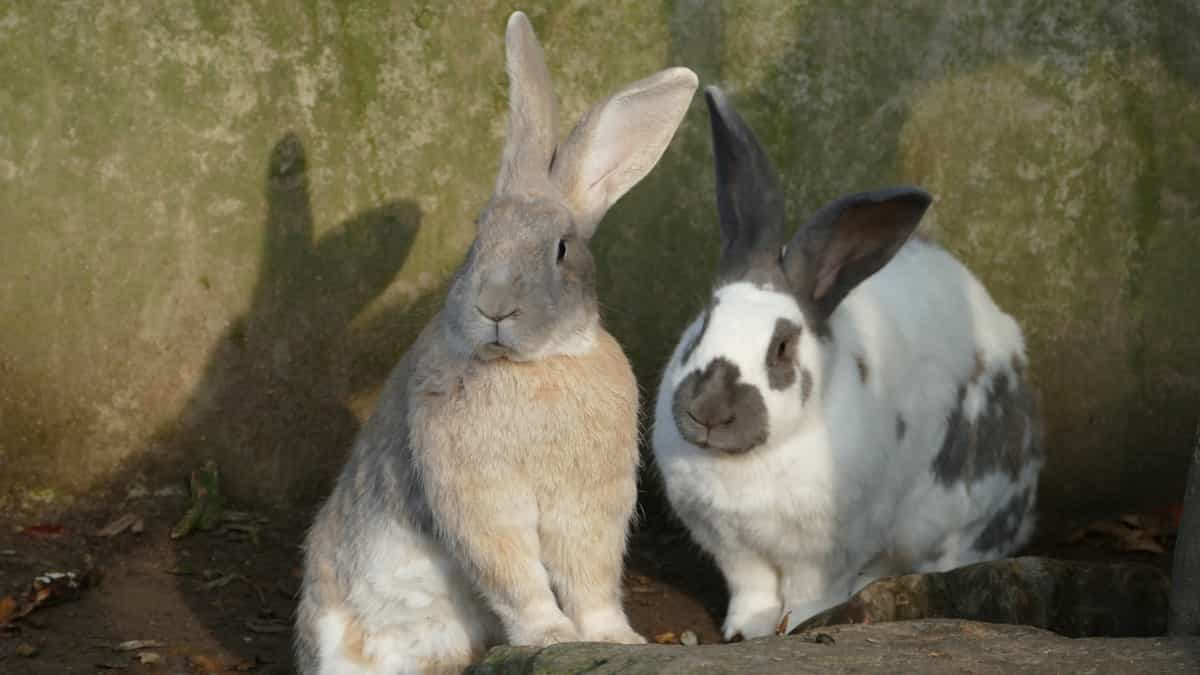
The NRBA will provide technical support and training to farmers and work with financial institutions to ensure that farmers have access to loans and other forms of financial assistance. Rabbit farming is a viable business venture in Nigeria, and with the right support, it can become a significant source of income for small-scale farmers.
Housing for commercial Rabbit farming in Nigeria
- There is a wide range of housing options available for commercial rabbit farming in Nigeria, from low-cost hutches to more expensive cages and pens. When selecting the house for your rabbits, the important factor to consider is their safety and comfort.
- Hutches are the most basic type of housing for rabbits and can be made from wood, plastic, or wire. They should be big enough for the rabbits to move around freely and have plenty of ventilation.
- Cages are another option for housing rabbits. Cages should be large enough for the rabbits to move around freely and have plenty of ventilation.
- Pens are larger enclosures that provide more space for the rabbits to move around and exercise. Pens can be made from wood, wire, or plastic and should have plenty of ventilation.
Problems faced by rabbit farmers in Nigeria
One of the biggest problems is a lack of knowledge about rabbit husbandry among farmers and consumers. This lack of knowledge often leads to poor management practices, resulting in health problems for the rabbits and low productivity. Another big challenge facing rabbit farmers in Nigeria is a lack of access to quality breeding stock. There are very few purebred rabbits in the country, and those available are often expensive.
It is difficult for small-scale farmers to get started in the industry or improve their herds’ quality. Lastly, another problem that rabbit farmers face is a lack of infrastructure. Nigeria has no dedicated rabbit farms, and most farmers rear their rabbits on smallholdings. This makes it difficult to get reliable access to feed and other inputs and also makes it difficult to transport rabbits to the market.
Commercial rabbit farming in Nigeria
Commercial rabbit farming in Nigeria is a rewarding and lucrative endeavor. Any entrepreneur can set up a successful commercial rabbit farm with the right knowledge and resources. Rabbits are a valuable commodity in Nigeria. They are popular for their meat, considered a delicacy in many parts of the country.
Rabbit meat is low in fat and cholesterol, making it a healthy option for those looking for alternatives to other meats. There is a growing demand for rabbits and their products in Nigeria. This presents a unique opportunity for enterprising farmers to start commercial rabbit farms. With the right planning and execution, a commercial rabbit farm can be extremely profitable.
Tips on how to start a commercial rabbit farm in Nigeria:
- Choose the right location: The first step to setting up any business is choosing the right location. When selecting a site for your commercial rabbit farm, consider factors such as proximity to markets, availability of resources, and transportation infrastructure.
- Build adequate housing: Rabbits must have access to clean, spacious housing that protects them from the elements and predators. The type of housing you build will depend on the climate conditions in your area and the number of rabbits you plan to keep.
- Give them plenty of space: Rabbits need room to move around and exercise, so make sure their enclosure is large enough for them to do so.
- Please provide them with fresh food and water daily: A diet of fresh vegetables and water is essential for keeping rabbits healthy. Commercial rabbit farms typically house rabbits in cages and feed them a diet of pellets and hay. The rabbits are usually slaughtered at 4-5 months of age.
- Keep their enclosure clean: Rabbits need a clean environment like all animals. Be sure to clean out their enclosure regularly.
- Please provide them with toys and activities: Rabbits need stimulation and enrichment, so provide them with toys and activities to keep them occupied.
In case you missed it: Top 50 Rabbit Farming Tips, Ideas, and Techniques
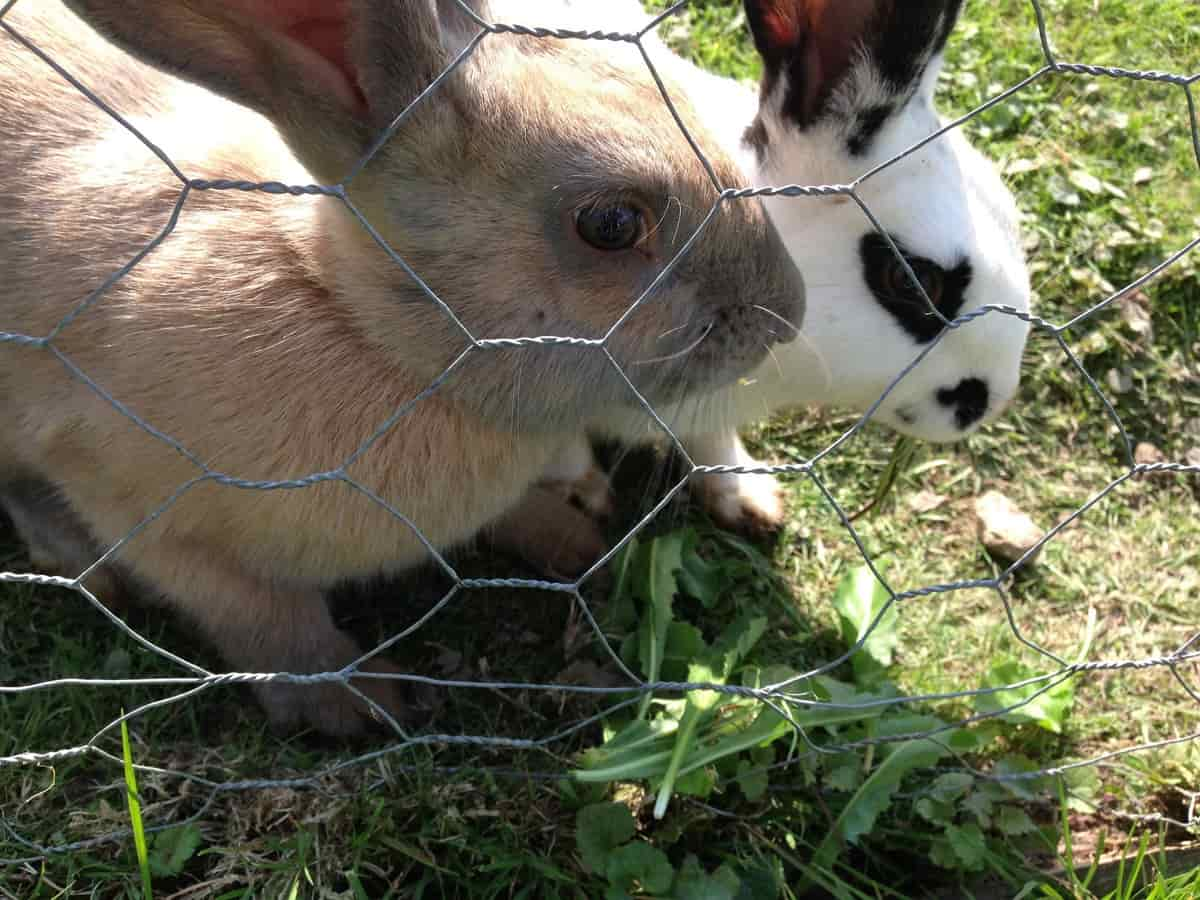
Challenges of rabbit farming in Nigeria
Rabbit farming in Nigeria can be a challenging endeavor. There are many factors to remember when starting a farm, such as land availability, climate, and market access. Additionally, rabbits are susceptible to disease and predators, making raising them a risky investment. Despite the challenges, rabbit farming can be a profitable enterprise in Nigeria. Rabbit meat is a delicacy in many parts of the country, and there is a growing demand for it as the population increases.
A rabbit farm can be a successful business venture with proper planning and management. With proper planning and management, farmers can overcome the obstacles and produce healthy rabbits that provide a valuable source of income and nutrition for their families and communities.
Common breeds of rabbit in Nigeria
- The Chinchilla is the largest of the three breeds and is known for its thick fur coat. This breed is a good choice for those who want to raise rabbits for their fur.
- The Dwarf Hotot is the smallest of the three breeds and is known for its playful nature. This breed makes a good pet rabbit and is also popular for show rabbits.
- The New Zealand White is a medium-sized breed known for being calm and docile. This breed is a good choice for meat production, as well as being a popular pet rabbit.
- Dutch Rabbits are a popular pet breed due to their friendly nature and cute appearance. In addition, they come in various colors and patterns, making them very eye-catching.
- Flemish Giant rabbits are the largest breed of domestic rabbit, weighing up to 7kg. They make great pets but can be high maintenance due to their size and special dietary requirements.
Choose a rabbit farming method in Nigeria
- Deep Litter Method – The deep litter method is when the rabbits are kept in a shed or barn, and the floor is covered with straw or hay. The rabbits will urinate and defecate in the straw, which will create compost that can be used to fertilize the farm. This method requires more work because the straw needs to be turned regularly, but it’s more natural for rabbits.
- Cage Method – The cage method is when the rabbits are kept in cages stacked on each other. This method is less work because you don’t have to turn the straw, but it’s less natural for the rabbits.
In case you missed it: Rabbit Feed Chart and Weight Chart
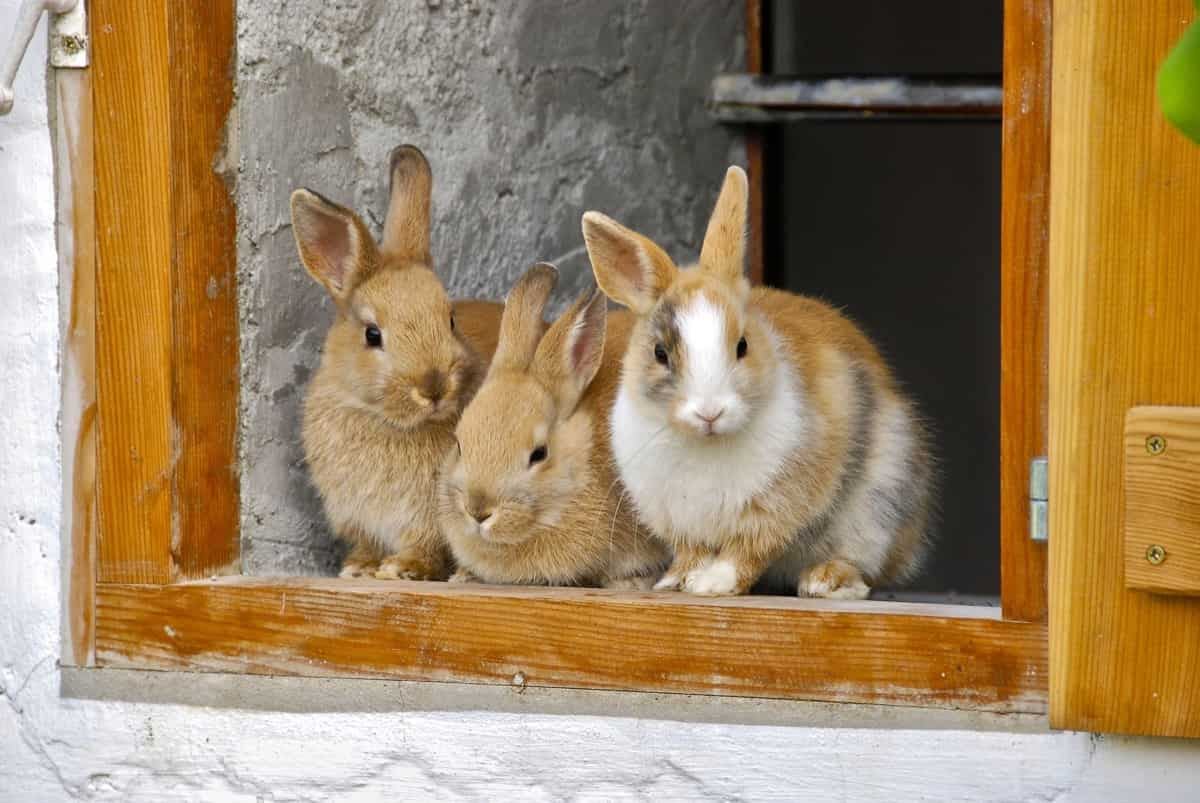
Feed management for rabbit farming in Nigeria
- In Nigeria, rabbits are typically fed a diet of pellets, hay, vegetables, and water. However, the specific ingredients and proportions can vary based on the age and health of the rabbit, as well as the time of year.
- For example, baby rabbits need to eat more often than adult rabbits, so their diet should be higher in calories and fat. In winter, when less vegetation is available, hay becomes an important part of the diet to help keep the rabbit warm.
- Rabbits also like to forage for food, so including fresh vegetables and greens in their diet is important for their health. Common vegetables fed to rabbits include carrots, celery, parsley, and spinach. Greens such as kale and Swiss chard are also good options.
Hygiene and prevention of disease in rabbit farming in Nigeria
Rabbit farming in Nigeria is a new and upcoming industry. As with any new industry, there are bound to be some teething problems. One of the main problems facing the rabbit industry in Nigeria is the lack of knowledge on how to care for rabbits and prevent disease properly. This is a big problem, as rabbits are very susceptible to diseases. If not properly cared for, they can easily contract diseases that can kill them.
This is why it is important for those involved in rabbit farming in Nigeria to learn about proper hygiene and disease prevention. The most common diseases affecting rabbits are respiratory, gastrointestinal, and skin diseases. Respiratory diseases are usually caused by bacteria or viruses that infect the lungs. Gastrointestinal diseases are usually caused by parasites that live in the intestines. Skin diseases are usually caused by mites or other parasites that live on the skin.
There are many ways to prevent these diseases from occurring in rabbits. The first step is ensuring they are kept in clean, spacious cages. The cage is made of wire, so air can circulate properly and help keep the cage clean. It should also be large enough, so the rabbits have plenty of room to move around and exercise. The next step is to provide them with a healthy diet. They should have access to fresh hay, vegetables, water, and a small number of pellets each day.
In case you missed it: Rabbit Farming Business Plan, Cost, Profit Margin in India
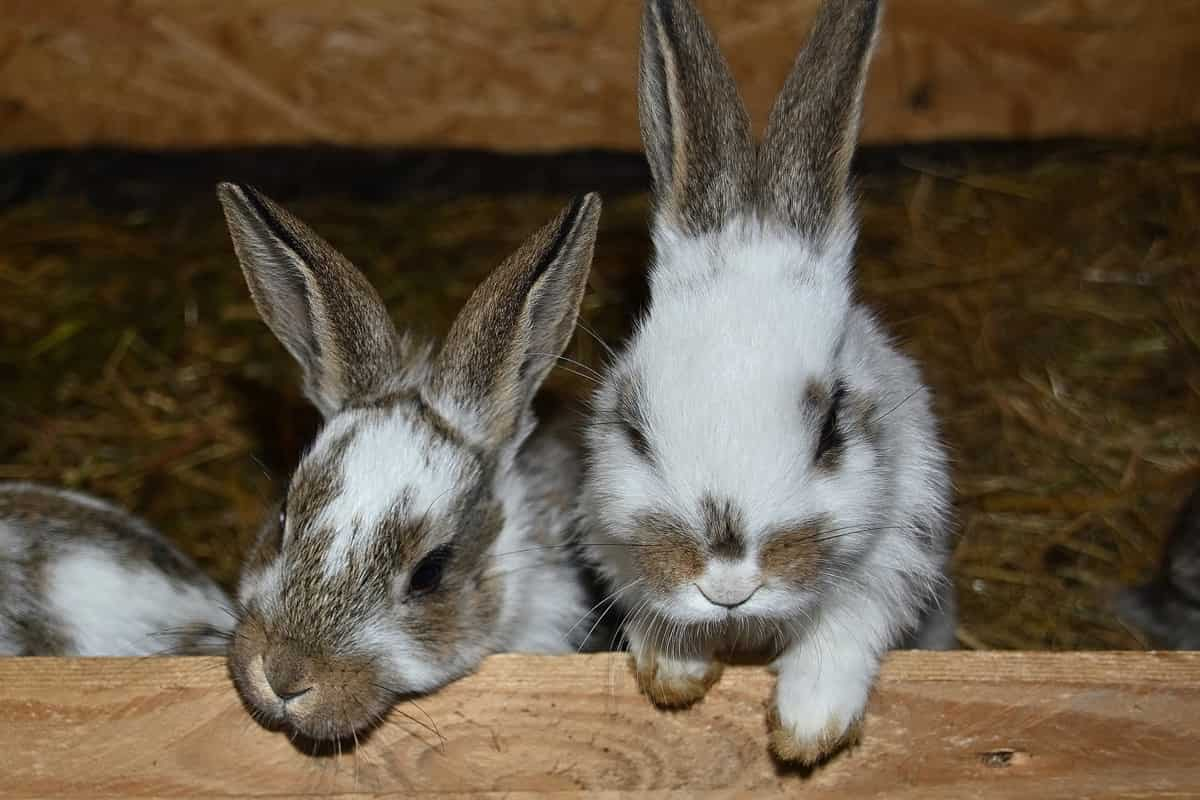
Cost to start a rabbit farm in Nigeria
- Assuming you are referring to the cost of setting up a commercial rabbit farm in Nigeria, the costs can vary greatly depending on the scale of the operation.
- The minimum start-up costs for a rabbit farming business are N45,000 to N100,000. It can cost more if you want to start on a large scale.
- This includes purchasing rabbits, cages, feeders, and other necessary equipment. The cost of setting up a larger commercial farm with 100 or more cages could be 2 million Naira. In addition to the initial setup costs, ongoing costs are associated with running a rabbit farm, such as feed costs, veterinary care, and labor costs.
Conclusion
Rabbit farming provides a source of income for small-scale farmers and contributes to the country’s food security. Rabbit farming involves raising rabbits for meat or other purposes such as wool or pets. Rabbit farming also helps diversify the country’s protein production and provides an important food source for many rural households.
- Economical Aquaculture: A Guide to Low-Budget Fish Farming
- 15 Common Planting Errors That Can Doom Your Fruit Trees
- How to Make Houseplants Bushy: Effective Tips and Ideas
- Innovative Strategies for Boosting Coconut Pollination and Yield
- Pollination Strategies for Maximum Pumpkin Yield
- The Complete Guide to Chicken Fattening: Strategies for Maximum Growth
- Natural Solutions for Tulip Problems: 100% Effective Remedies for Leaf and Bulb-Related Issues
- Revolutionizing Citrus Preservation: Towards a Healthier, Greener Future
- Natural Solutions for Peony Leaf and Flower Problems: 100% Effective Remedies
- Maximizing Profits with Avocado Contract Farming in India: A Comprehensive Guide
- Natural Solutions for Hydrangea Problems: 100% Effective Remedies for Leaf and Flowers
- The Ultimate Guide to Choosing the Perfect Foliage Friend: Bringing Life Indoors
- From Sunlight to Sustainability: 15 Ways to Use Solar Technology in Agriculture
- The Ultimate Guide to Dong Tao Chicken: Exploring from History to Raising
- The Eco-Friendly Makeover: How to Convert Your Unused Swimming Pool into a Fish Pond
- Mastering the Art of Delaware Chicken Farming: Essentials for Healthy Backyard Flocks
- 20 Best Homemade Fertilizers for Money Plant: DIY Recipes and Application Methods
- How to Craft a Comprehensive Free-Range Chicken Farming Business Plan
- Brighten Your Flock: Raising Easter Egger Chickens for Beauty and Bounty
- How to Optimize Your Poultry Egg Farm Business Plan with These Strategies
- Subsidy for Spirulina Cultivation: How Indian Government Schemes Encouraging Spirulina Farmers
- Ultimate Guide to Raising Dominique Chickens: Breeding, Feeding, Egg-Production, and Care
- Mastering the Art of Raising Jersey Giant Chickens: Care, Feeding, and More
- Ultimate Guide to Raising Legbar Chickens: Breeding, Farming Practices, Diet, Egg-Production
- How to Raise Welsummer Chickens: A Comprehensive Guide for Beginners
- How to Protect Indoor Plants in Winter: A Comprehensive Guide
- Ultimate Guide to Grow Bag Gardening: Tips, Tricks, and Planting Ideas for Urban Gardeners
- Guide to Lotus Cultivation: How to Propagate, Plant, Grow, Care, Cost, and Profit
- Agriculture Drone Subsidy Scheme: Government Kisan Subsidy, License, and How to Apply Online
- Ultimate Guide to Raising Araucana Chickens: Breed Profile, Farming Economics, Diet, and Care
- Bringing Hydroponics to Classroom: Importance, Benefits of Learning for School Students
- Ultimate Guide to Raising Polish Chickens: Breed Profile, Farming Economics, Diet, and Care
- Ultimate Guide to Raising Australorp Chickens: Profile, Farming Economics, Egg Production, Diet, and Care
- Silkie Chicken Farming: Raising Practices, Varieties, Egg Production, Diet, and Care
- Sussex Chicken Farming: Raising Practices, Varieties, Egg Production, Diet and Care
- Homemade Feed Formulations for Livestock: Discover Cost-effective Starter to Finisher Feed Recipes
I Like farming business which includes rabbit farming business snail business CTC etc . I need to start rabbit farming first .